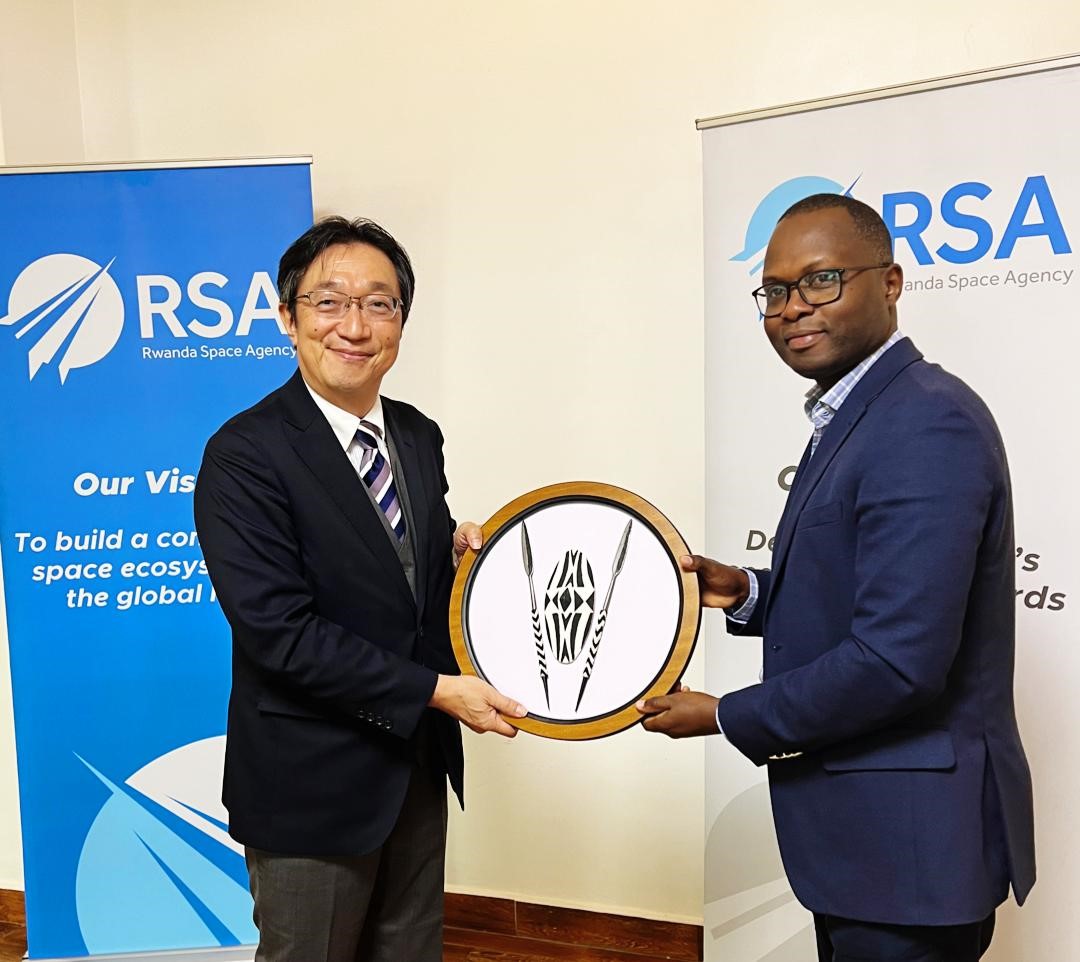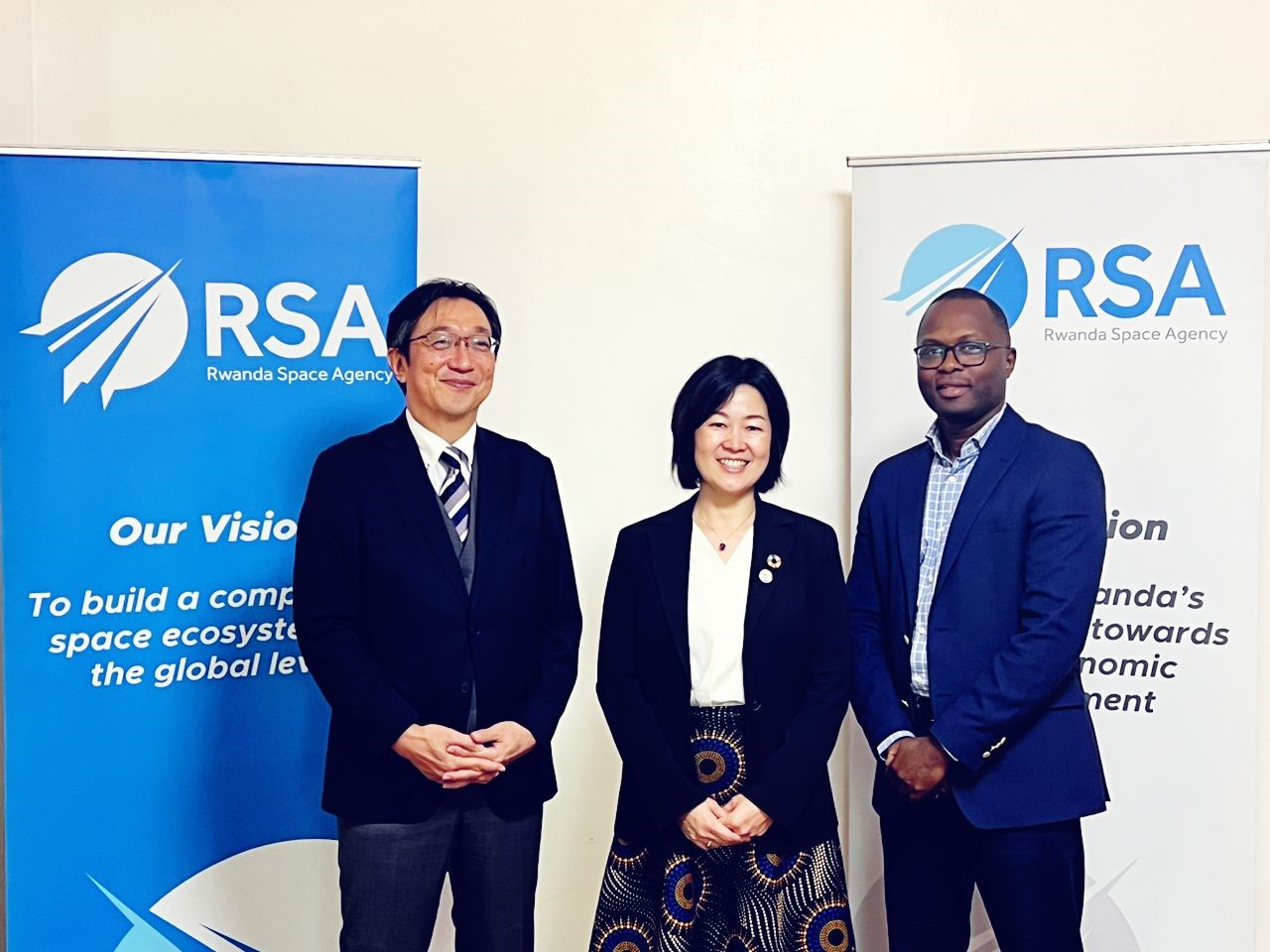JICA Senior official visits RSA
KIGALI – In the wake of a successful nationwide outreach campaign, Rwanda Space Agency (RSA) continued space diplomacy initiatives when they hosted senior representatives of the Japan International Cooperation Agency (JICA) in Kigali, Rwanda
Special Advisor to the JICA President, Mr Nakamura Toshiyuki, visited RSA and met with the CEO of RSA, Col. Francis Ngabo to discuss ongoing and future collaboration in the utilization of space technology in achieving the Sustainable Development Goals. Japan and Rwanda’s space.
Rwanda’s space program providing capacity building in development for the nation’s first satellite which was launched at the Tanegashima space center. Since then, Rwandan engineers have trained in Japanese universities.

In April, RSA was hosted by the President of Japan Aerospace Exploration Agency (JAXA), Yamakawa Hiroshi and the Vice-President of JICA, Iwasaki Eiji, during the week-long strategic visit to enhance the space partnership between Rwanda and Japan.
Both Japan and Rwanda are part of the 31 members that have so far signed onto the Artemis Accords. The signatories of the Accords met last month at the International Astronautical Congress to discuss progress on two working groups – both of which Rwanda is part of.
The discussions between JICA & RSA leadership aimed to explore existing aspects of human resource development both for RSA and government stakeholders as regards to harnessing space-based technologies to address challenges across various industries and socio-economic sectors. This not only promises to boost inclusive economic growth but also signifies a strengthened partnership between Rwanda and Japan.
The focus on inclusive growth and the development of human capital through collaboration with Japan holds excellent promise for RSA’s future progress. This collaboration will not only help address domestic challenges but also position RSA as a valuable contributor on the global stage in space technology, innovation, and inclusive economic development.
As the role of digital technologies in Africa’s development become more essential, JICA support in Africa has steadily increased especially with bilateral and multilateral organizations that share similar values. JICA’s global agenda highlights policy support in twenty focus areas among which are plans to support ICT private sector development and open data use in Africa. Another project, “Next Innovation with Japan” was also launched to promotes entrepreneurship & innovation in emerging nations.
To most observers, the Japan–Africa partnership has stood the test of time with persistent engagement and commitment to the continent’s development, even supporting Africa’s membership to the G20 as well as partnering in climate resilience and adaptation.
Last year, Japan leveraged her global leaderships on climate change with the Tokyo International Conference on African Development’s (TICAD) to launch $4 billion fund for a Green Growth Initiative with Africa (GGA) focused on sustainable economic growth and the integration of African economies into the global economy.

TICAD, which was launched 30 years ago, has evolved into a new model of international dialogue promoting Japan’s unique development philosophy in engaging with the continent. The self-help philosophy that focused on African ownership and economic cooperation marked a significant departure from western suppositions of charitable aid and vertical donor–recipient relationships.
The CEO of RSA affirmed that partners such as JICA are critical in achieving RSA’s goal to harness space technologies in informing decision-making processes, thereby driving inclusive growth and fostering sustainable development in Rwanda
